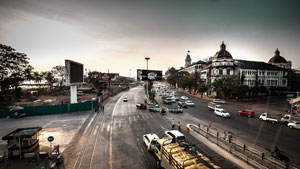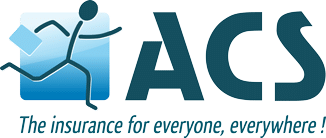Living in Naypyidaw, Myanmar
Living in Naypyidaw takes a lot of getting used to since it is run by the government in a very strict manner. There is also an aura of authority that surrounds the city because of the constant presence of military personnel that are often seen patrolling around. Relocating to Naypyidaw is best for expats who seek isolation and a quiet environment. Here are some helpful guidelines that’ll aid you in your new life in the ‘Abode of the King’.
Travelling Around
Driving
Traffic is the least of your problems in Naypyidaw since the roads have almost twenty lanes and rarely will you see a huge number of vehicles driving on it. Extreme caution is also required when going to and from Naypyidaw. Some locals refer to its infamous wide road as the ‘Death Highway’ because its hasty construction often leads to accidents and lack of funds that’ll implement traffic safety measures.
Your International Driver’s License will not be honoured in Naypyidaw or anywhere in Myanmar, so you need to convert your permit to a local one, which takes about five business days. Expats who are planning to drive should go to the Road Transportation Administration Department to have their foreign licenses converted and should have some of these basic requirements upon application:
- A copy of your International Driver’s License
- Copy of passport and valid visa
- Proof of Stay Permit
- Completed Medical Exam which proves that the applicant is drug-free
- A letter of request from the local employer/sponsor addressed to the Director of Ka Nya stating that the applicant needs a local visa in relation to his job description.
- Duly paid application fee which is around €60.00.
Public Transportation
Public transport between neighbourhoods in Naypyidaw is still limited. Currently, the city still has no Metro Rail System due to the cancellation of the proposed 50km metro due to lack of budget and demand. Expats living in Naypyidaw can travel using buses or taxis. Motorbikes are also allowed but are strictly prohibited in some areas because of the high rates of road related accidents.

If you are going to travel to Naypyidaw from other cities such as Yangon, the easiest way is to ride the bus. The average fare (one-way) for one person from Yangon to Naypyidaw is €6 per head. Expats can also ride a taxi which costs around K10000 (Myanmar Kyat) or roughly €10.00 to €15.00.
Neighbourhoods
Naypyidaw is neatly organised into six zones: Residential Zone, Ministry Zone, Military Zone, Hotel Zone, Shopping Zone and International Zone (for foreign embassies.) Finding a place to live inside Naypyidaw is easy since expats are only allowed to reside either in the Hotel or Residential areas.
Residential Zone
Naypyidaw’s residential zone is the area allotted for those who are working for the government, ministries and embassies. It also serves as a home for most locals that work as street sweepers, construction workers (because Naypyidaw is still under continuous development) and those who do the maintenance works for the whole city. The Residential Zone is organised into 1,200 four-storey apartment blocks. Building roofs in the Residential Zone are colour-coded based on the job of its residents. People living in this area are designated accordingly to separate apartment buildings depending on their work.
Hotel Zone
Another area allotted for residency is the Hotel Zone. If you are not a government employee and works under a private company/business, this is the only place where you will be allowed to live in Naypyidaw. As discussed earlier, the maximum time length of a work permit in Myanmar is only up to 12 months. Some types of visas will also require you to leave the city every 70 days so some expats can consider living in the Hotel Zone especially those who are on a short term assignment.
Aside from the typical hotel room, there are also villa-style accommodations in the Hotel Zone. As there are so few of them due to the small number of people going to Naypyidaw, you can expect that the rates are more reasonable compared to the hotels in Mandalay and Yangon. The rooms are very spacious and you also do not have to worry about waiting in line to check in.
Expats can consider the budget-friendly Jade City Hotel which is conveniently near the shopping district and the Buddha Goya Pagoda. The average rate of a standard room in Jade City Hotel is €30 to €40 per day, but you can also enquire if you prefer to pay on a monthly basis.
Yangon
If you are looking for a more typical type of neighbourhood and is willing to travel to and from Naypyidaw, then you can consider its neighbouring cities. One famous expat, residential areas in the former capitals, is the Golden Valley in Bahan Township. However, you should expect that the rental prices are high since Myanmar itself is considered to be one of the most expensive nations in Asia when it comes to housing. There’s a high probability that most expats who are working in Naypyidaw are residing in Golden Valley. This area is conveniently located in the middle of Yangon which gives its residents an easy access to amenities, and schools.
Housing
Under the recently passed Condominium Law, foreign nationals are now legally allowed to purchase a condominium in Myanmar as long as 60% of its units are owned by locals. However, expats or foreigners are not allowed to buy a property inside Naypyidaw for the one simple reason: there are no houses/apartments for sale in the capital.
The only two areas designated for residence in Naypyidaw are either the government issued housing or hotels that are built for foreigners who are on short-term assignments in the city. You have the option to search for other types of accommodation such as apartments and houses but in other cities like Yangon, which is the home of most expats and locals working in Naypyidaw.
A majority of expats in Naypyidaw are mostly employed under NGOs and huge companies where employers usually cover the housing of their employees. However, if you do not have that type of benefit, you can look for accommodation on your own or thru a real estate agent. There are many English speaking brokers in Yangon that are more familiar with the market and can help you find the most suitable accommodation based on your needs. Agents charge expats a commission fee which is usually equivalent to a month’s rent of your chosen apartment/house.
The average rental fee of a one-bedroom apartment in Yangon is €350 monthly while a three-bedroom unit is around €1000 per month. You can also opt to rent a house if you prefer a bigger place or if you are relocating with your dependents. The lease for a typical two-bedroom home in the city centre such as Golden Valley ranges from €3000 to €4000 per month. You should also expect that the cost of utilities such as water, electricity and monthly rent are not included in your rent so you need to budget at least €25-€30 to cover you’re the monthly bills for your essential services.
Education
Myanmar’s educational system is under the regulation of the Ministry of Education which is located in Naypyidaw. Preschool years are optional but the first five years in elementary are compulsory. The local educational structure follows the K to 12 programmes and is divided into four different levels:
- Primary (Grades 1 -5)
- Middle (Grades 6 – 9)
- Secondary (Grades 10 – 12)
- Tertiary (College or University Education)
Since Naypyidaw mostly serves as the seat of the government, a majority of its residents send their kids to schools in neighbouring cities. There are many public schools across Myanmar, but those who can afford choose the private institutions since it has better facilities and less number of students. Expats can also opt to enrol their children in International Schools which are mostly located in Yangon for them to continue with the curriculum from your home country. Some of them are:
Yangon International School offers pre-school to Grade 12 education. It follows the American curriculum and where graduates receive an American high school type of diploma which is honoured in many prominent universities around the globe such as Harvard, UC Berkeley, National University of Singapore and 75 other tertiary institutions.
- Yangon International School
117 Thumingalar Housing, Thingangyun Township, Yangon, Myanmar
Tel. No.: (95-1) 578171, 573149
Myanmar International School is an institution whose curriculum is based on the globally recognised Cambridge International Education in the UK. It caters students from pre-school to grade 12 and uses English as the primary language in teaching.
- Myanmar International School
No 20 Pyin Nya Waddy Street
Yankin Township, Yangon
Tel. No.: (95-1) 558115 to 18
Another leading institution for expats near Naypyidaw is The British International School which provides world standard of education for children who are under the K to 12 programme. It follows the English National Curriculum and is part of the British Schools Foundation, a network that is composed of ten acclaimed schools in Europe, America and Asia.
- The British International School
2A Yangon-Insein Road, Ward No. 9, Hlaing Township, Yangon, Myanmar, 11051
Tel. No.: (95-1) 525 044
You can also consider enrolling your children in some of the local schools if you want them to be more familiar with the local culture and language. Private institutions were only allowed to operate in Myanmar on 2012 and became the top choice of many parents ever since. One of the oldest and most prominent local schools near Naypyidaw is the University of Yangon that was founded in 1878.
- University of Yangon
Kamayut 11041, Yangon Region, Myanmar
Tel. No.: (95-1) 534 390
Requirements for admission vary from every school whether it is international or local. It is best that you contact them or schedule an appointment with one of their staff to know about their specific requirements and tuition fees. You can also visit/communicate with the Ministry of Education for further instructions about the local procedures and policies for enrolling expat students. It will still be useful for you to prepare some of these documents:
- Valid Passport/Permit
- Complete Academic Reports from all the previous schools
- Medical Examination Result
Know more about Naypyidaw, Myanmar with our relocation guide for expatriates:
This relocation guide is provided by http://www.expatfinder.com, copyright © 2016 Interexpat Pte. Ltd. All rights reserved. Neither Interexpat nor S.A.S. ACS can be held liable for any errors or omissions, or any loss, damage that may occur as a result of this information. This information does not constitute advice.

